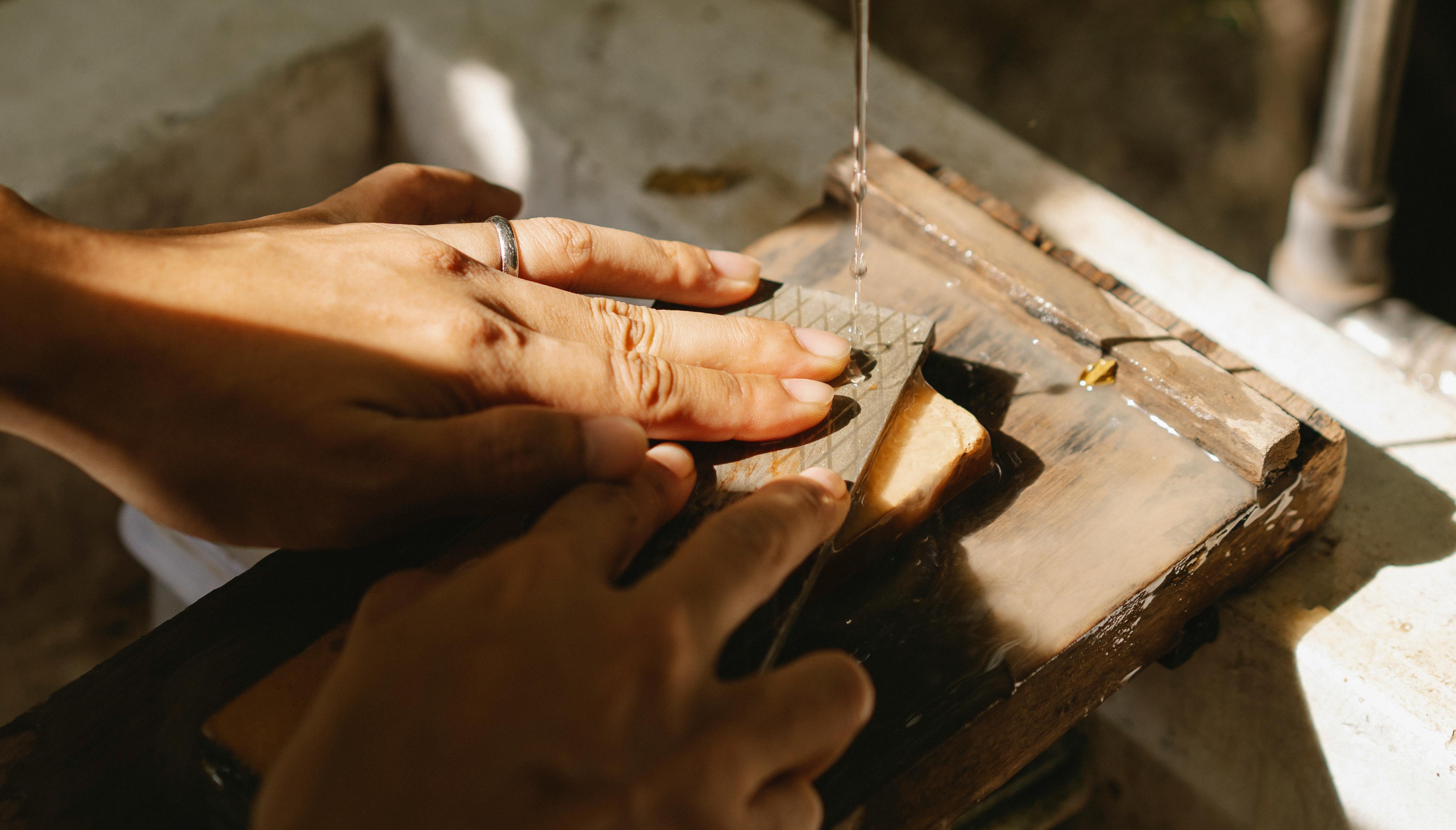Introduction:
A person can earn money by two means; one is agriculture and the other is business. If business is not done ethically, there will always be inflation and shortages of goods. As can be seen in the case of many commodities such as wheat, sugar, etc. It is due to storage, speculation and the selfishness of some businessmen. The government has also become a trader, while the sharia has prevented the Islamic government from trading.
As it can be seen that business is an important part of life, Prophet Muhammad (PBUH) said, “People get 9/10 of their daily bread through trade.” Islam explains the concept of fair trade by counting business ethics. If the trade or anything else is done against morality and creed, it will lead to a bad end on the day of resurrection. Also, by law, the person guilty of illegal business would end up nowhere. Islam places great emphasis on the importance of business ethics. Allah says in the Qur’an: “They say that buying is also like interest, but Allah has declared that buying is permissible and interest is prohibited.” And “When you buy or sell, have someone witness it.” The Holy Prophet Muhammad (peace be upon him) said: “If there was no trade, you would have become a burden on others.” He also said that “A merchant is the guardian of the means of daily bread and a guardian of the dignity of himself and other people.” The Holy Prophet Muhammad (PBUH) encouraged trustworthy traders with these words: “A trustworthy and truthful trader will be with the prophets and the truthful and the martyrs and the righteous.” “God shows mercy to a person who is kind when he sells, when he buys and when he claims” The prophet emphasized the truthfulness and uprightness of the merchants. He said that “Truly, the merchants will be resurrected sinners on the day of resurrection, except the one who fears God, he is good and speaks the truth.”
business and ethics
As Muslims, we must adhere to ethical standards, not only in business but also in all aspects of life. Both business and ethics are interrelated. There is a reference to this point in the Qur’an: “For you, the Messenger of Allah is a good example to follow.” Allah Almighty says: “To the people of Madyan (We sent) Shu’aib, one of his own brothers: he said: ‘O my people! Worship Allah. You have no god but Him. And do not give short measure or weight I see you in prosperity, but I fear for you the sorrow of a day that will surround you on all sides. And, oh my people!, give the just measure and weight, and do not withhold from the people what corresponds to them: do not do evil on earth with the intent to do harm. What Allah has left you is the best for you, if (but) you believe! But I am not over you to watch!
Prophet Muhammad was chosen by God to be His last prophet and messenger at the age of 40. Before that, he was heavily involved in business. He and his wife Khadija were merchants. It is reported that he traveled to Syria, Yemen, Bahrain and many other places in Arabia to trade. Some historians have also suggested that he probably traveled to Iraq and Ethiopia. From a very young age he was engaged in commerce. He had a good reputation as a hardworking, honest, truthful, and highly successful businessman.
fair dealing in business
The Holy Quran and the Prophet Muhammad (peace be upon him) have made it clear that a Muslim should be honest and upright in his business and monetary transactions. Likewise, the true Muslim should keep his word and fulfill his promises, avoid fraud and avoid deceit and treachery, not usurp the rights of others or engage in unlawful litigation. Also, a good Muslim does not bear false witness and refrains from making illegal money like usury and bribery. According to Islam, whoever is not free from these vices is not a true believer but a renegade and a worthless transgressor.
And the Qur’an is rich in verses confirming all this. Allah says in the Qur’an: “Do not eat the property of others by unfair and dishonest means.”
Allah forbids all impure and corrupt means of earning money, such as dishonest trading, gambling, and bribery. And the Holy Quran has explained and described such practices in many of its verses. He says: “Woe to those who traffic in fraud, – those who, when they have to receive from men by measure, demand the full measure, but when they have to give by measure or weight to men, they give less than their due.” Do not think that they will be asked on a Strong Day when (all) humanity will appear before the Lord of lords”.
Another example is given in the next verse, where Allah urges Muslims to be very careful with their trusts and the rights of other people. “Allah commands you to return your trust to those to whom you owe it.”
Fundamental principles of fair business relationships
According to Islam, the following things must be avoided in order to start a fair business.
1. Without fraud or deceit, the Prophet (peace be upon him) is reported to have said: “When a sale is made, say: There is no cheating.”
2. Sellers should avoid swearing too much when selling merchandise. The Prophet (peace be upon him) is reported to have said: “Beware of excessive swearing in a sale. Although you find markets, you reduce abundance.”
3. Mutual consent is necessary. The Prophet (peace be upon him) is reported to have said: “The sale is complete when the two parties involved part with mutual consent.”
4. Be strict about weights and measures. The Prophet (peace be upon him) said: “When people cheat in weights and measures, their provision is taken away.” He told the owners of measures and weights: “You have been entrusted with matters for which some nations were destroyed before you.”
5. The Prophet (peace be upon him) forbade monopolies. “Whoever monopolizes is a sinner.”
6. Free enterprise, the price of merchandise should not be set unless there is a situation of crisis or extreme need.
7. Hoarding of merchandise for the purpose of increasing prices is prohibited.
8. The transaction of prohibited items (Haram), such as intoxicants, is prohibited.
Fraud and dishonesty in business
Prophet Muhammad (peace be upon him) has emphasized the importance of honesty in most of his sermons, saying: “Remember, there is no faith in the untrustworthy; there is no place in religion for the one who does not trust.” he cares about his word or promise. He (PBUH) also said: “The signs of a hypocrite are three, when he speaks, he is false, when he promises, he fails; And when you trust him, he plays fake.”
Condemning those who cheat in business, Prophet Muhammad (peace be upon him) said: “The one who cheats is not from us. Deceit and fraud are things that lead one to Hell.”
Once the Prophet Muhammad (peace be upon him) came across a pile of corn in the market in Medina and placed his hand on it. His fingers felt wet. When questioned, the merchant replied that the rain had fallen on him. The Prophet (peace be upon him) observed: “Why did you not keep (the moist portion) on top of the dry corn, so that men can see it? He who deceives is not one of us.”
Therefore, dealers who cheat by showing customers a fake sample or hiding from them the defects of the product they are selling are not true Muslims in the judgment of Allah, the Prophet (PBUH) and they will end up in hell.
Prophet Muhammad (peace be upon him) said: “The seller must explain to the buyer the defects, if any, in the quality of the item offered for sale. If this is not done, the seller will be permanently trapped in Wrath of Allah”.
In short, Islam forbids all kinds of cheating and dishonesty in business. The Holy Prophet has expressed his strong dislike for those who do so.
Bribery in business transactions
Bribery and usury, although they can be practiced by mutual agreement and consent, are totally prohibited and prohibited. Those who are guilty of them have been condemned by Allah and his Prophet (PBUH). The Prophet Muhammad (peace be upon him) said: “Allah’s curse falls on the one who offers a loan on usurious terms, and on the one who receives it, and on those who witness the transaction, and on the writer who write the writing.”
Prophet Muhammad (PBUH) said: “If a person made a recommendation to someone in a fair manner and the rewarding party gave him something as a gift (in exchange for it) and he accepted it, then he made a serious mistake (meaning which is also a form of bribery)”.
The usurpation of another’s property by force or fraud or dishonest litigation is even worse. Prophet Muhammad (peace be upon him) made this clear, when he said: “Whoever unjustly occupies land belonging to another will be plunged into the land together with the parcel of land on the Day of Judgment until he reaches the lowest layer of the earth. And “He who acquires the property of a Muslim unjustly by taking a false oath (before an Official) is forbidden by Allah to enter Paradise and Hell Fire becomes inevitable for him.” It is reported that the Prophet Muhammad (peace be upon him) again warned a person who was very fond of litigating with others with these strong words: “Remember, whoever obtains another’s property by taking a false oath will appear as a leper before Allah (on the Day of Judgment).”
And, again he (peace be upon him) said: “Anyone who claims something that is not his, it is not ours.”




